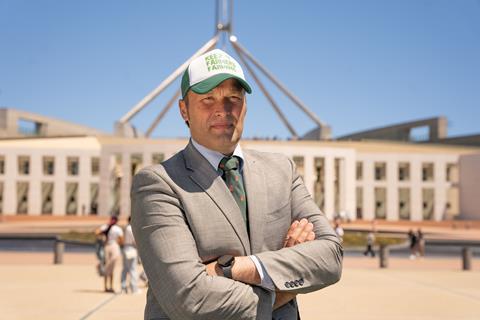Industry bodies oppose controversial levy following first Sustainable Biosecurity Funding Advisory Panel
Representatives of Australia’s agriculture industries including horticulture have voiced their opposition to the Australian government’s Biosecurity Protection Levy (BPL) following the first meeting of the Sustainable Biosecurity Funding Advisory Panel (SBFAP). The first meeting of the SBFAP was held in Canberra on 30 April as part of the Australian Government’s efforts to increase funding transparency for growers and importers ahead of the proposed A$1bn Sustainable Biosecurity Funding model. The model is set to include increased funding from government, importers and producers through the BPL.

Once implemented on 1 July 2024, the new model will require importers to pay 48 per cent of biosecurity costs, taxpayers to contribute 44 per cent, producers 6 per cent and Australia Post 2 per cent.
Peak industry bodies across Australia’s agriculture industry were invited to be a part of the Panel including National Farmers Federation (NFF), the Australian Fresh Produce Alliance and Plant Health Australia Industry Forum.
However, following continued opposition to the levy, Australian growers and producers have set a National Day of Action on May 8 calling on the Government to scrap the tax altogether.
NFF President David Jochinke said rarely did an issue warrant such a stand, but growers were fed up with the Government’s dogged pursuit of implementing the levy, despite strong opposition from industry and independent experts.
“We vehemently oppose this policy,” Jochinke said.
“On behalf of our members, nearly all of Australia’s 85,000 producers and the thousands of individuals and businesses in the supply chain, we are telling this Government to scrap the tax.”
Panel representative, Citrus Australia chief executive and chair of the Plant Industry Forum, Nathan Hancock supports the Day of Action and said members of the Plant Industry Forum and Citrus Australia had received resources to support the campaign.
“The Plant Industry Forum remains strongly opposed to the BPL and this remains our prime focus in this Panel process,” he said.
“We will continue to engage in these processes and others to ensure fairer and more equitable outcomes for producers, rather than being singled out as the only beneficiaries of biosecurity.”
Minister for agriculture, fisheries and forestry Murray Watt said the SBFAP is part of broader efforts to implement a fair, equitable and transparent model for biosecurity funding.
“The SBFAP will allow the government to meet regularly with those who have a stake in our strong biosecurity protections, show them what we are doing and allow them to input to future priorities,” he said.
“Already, based on extensive consultation with industry, we have adjusted the BPL design to apply it more fairly and proportionally to all.”
According to Watt, the SBFAP will meet three times a year to provide transparency of biosecurity expenditure and give growers and importers input into biosecurity priorities.
“We will be clear about what revenue is being raised from producers and importers, along with other components of the Sustainable Biosecurity Funding model, and how that money is being invested,” he said.
“The government will work with the advisory panel to ensure that biosecurity priorities identified by industry are clearly understood and acted upon.”
According to a statement from the Department of Agriculture, Fisheries and Forestry the cost of the BPL is around 0.05 per cent of the total value of agriculture, fisheries and forestry production, equivalent to 5 cents for every 100 dollars created in the industry.
“The small cost is far outweighed by the significant and lasting benefits producers gain from stronger biosecurity prevention arrangements and high international prices,” Watt said.
“The worst outcome for Australians, as consumers, and as primary producers, would be a significant biosecurity incursion.”



